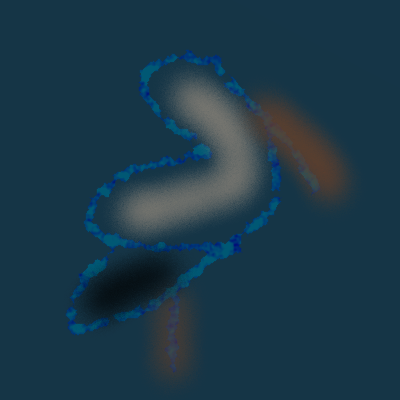結果
| 問題 | No.1300 Sum of Inversions |
| コンテスト | |
| ユーザー |
 Strorkis Strorkis
|
| 提出日時 | 2020-11-28 11:16:08 |
| 言語 | Rust (1.93.0 + proconio + num + itertools) |
| 結果 |
WA
|
| 実行時間 | - |
| コード長 | 4,549 bytes |
| 記録 | |
| コンパイル時間 | 14,515 ms |
| コンパイル使用メモリ | 400,004 KB |
| 実行使用メモリ | 18,056 KB |
| 最終ジャッジ日時 | 2024-09-12 22:15:58 |
| 合計ジャッジ時間 | 18,793 ms |
|
ジャッジサーバーID (参考情報) |
judge3 / judge5 |
(要ログイン)
| ファイルパターン | 結果 |
|---|---|
| sample | AC * 3 |
| other | AC * 4 WA * 30 |
ソースコード
use std::io::prelude::*;
fn input<R: BufRead>(stdin: &mut R) -> String {
let mut input = String::new();
stdin.read_line(&mut input).ok();
input
}
macro_rules! read {
($stdin:expr, [$t:tt; $n:expr]) => {
(0..$n).map(|_| read!($stdin, $t)).collect::<Vec<_>>()
};
($stdin:expr, [$t:tt]) => {
input($stdin).split_whitespace().map(|s| parse!(s, $t)).collect::<Vec<_>>()
};
($stdin:expr, ($($t:tt),*)) => {{
let input = input($stdin);
let mut iter = input.split_whitespace();
($(parse!(iter.next().unwrap(), $t)),*)
}};
($stdin:expr, $t:tt) => {
parse!(input($stdin).trim(), $t)
};
}
macro_rules! parse {
($s:expr, Chars) => ($s.chars().collect::<Vec<_>>());
($s:expr, Usize1) => (parse!($s, usize) - 1);
($s:expr, $t:ty) => ($s.parse::<$t>().unwrap());
}
#[derive(Clone, Copy, Debug, Eq, PartialEq, Ord, PartialOrd)]
struct ModInt(i64);
impl ModInt {
const MOD: i64 = 998_244_353;
fn new(x: i64) -> ModInt {
Self(x % Self::MOD)
}
}
impl std::ops::Add for ModInt {
type Output = Self;
fn add(self, other: Self) -> Self {
let x = self.0 + other.0;
if x < Self::MOD { Self(x) } else { Self(x - Self::MOD) }
}
}
impl std::ops::AddAssign for ModInt {
fn add_assign(&mut self, other: Self) {
*self = *self + other;
}
}
impl std::ops::Sub for ModInt {
type Output = Self;
fn sub(self, other: Self) -> Self {
if self.0 < other.0 {
Self(self.0 + Self::MOD - other.0)
} else {
Self(self.0 - other.0)
}
}
}
impl std::ops::SubAssign for ModInt {
fn sub_assign(&mut self, other: Self) {
*self = *self - other;
}
}
impl std::ops::Mul for ModInt {
type Output = Self;
fn mul(self, other: Self) -> Self {
Self::new(self.0 * other.0)
}
}
impl std::ops::MulAssign for ModInt {
fn mul_assign(&mut self, other: Self) {
*self = *self * other;
}
}
impl std::fmt::Display for ModInt {
fn fmt(&self, f: &mut std::fmt::Formatter<'_>) -> std::fmt::Result {
write!(f, "{}", self.0)
}
}
impl std::str::FromStr for ModInt {
type Err = std::num::ParseIntError;
fn from_str(s: &str) -> Result<Self, Self::Err> {
let x = s.parse()?;
Ok(ModInt::new(x))
}
}
struct FenwickTree<T> {
n: usize,
init: T,
data: Vec<T>,
}
impl<T: Copy + std::ops::AddAssign> FenwickTree<T> {
fn new(n: usize, init: T) -> FenwickTree<T> {
FenwickTree { n, init, data: vec![init; n] }
}
fn add(&mut self, mut p: usize, x: T) {
p += 1;
while p <= self.n {
self.data[p - 1] += x;
p += p & (!p + 1);
}
}
fn sum(&self, mut r: usize) -> T {
let mut res = self.init;
while r > 0 {
res += self.data[r - 1];
r -= r & (!r + 1);
}
res
}
}
fn solve<R: BufRead, W: Write>(stdin: &mut R, writer: &mut W) {
let n = read!(stdin, usize);
let a = read!(stdin, [ModInt]);
let mut ord = (0..n).collect::<Vec<_>>();
ord.sort_by_key(|&i| a[i]);
let mut left_counts = vec![ModInt(0); n];
let mut right_counts = vec![ModInt(0); n];
let mut left_sum = vec![ModInt(0); n];
let mut right_sum = vec![ModInt(0); n];
let mut counts_ft = FenwickTree::new(n, ModInt(0));
let mut sum_ft = FenwickTree::new(n, ModInt(0));
for &i in ord.iter().rev() {
left_counts[i] += counts_ft.sum(i);
left_sum[i] += sum_ft.sum(i);
counts_ft.add(i, ModInt(1));
sum_ft.add(i, a[i]);
}
let mut counts_ft = FenwickTree::new(n, ModInt(0));
let mut sum_ft = FenwickTree::new(n, ModInt(0));
for &i in ord.iter() {
right_counts[i] += counts_ft.sum(n - 1 - i);
right_sum[i] += sum_ft.sum(n - 1 - i);
counts_ft.add(n - 1 - i, ModInt(1));
sum_ft.add(n - 1 - i, a[i]);
}
let mut ans = ModInt(0);
for i in 0..n {
if left_counts[i] == ModInt(0) || right_counts[i] == ModInt(0) {
continue;
}
ans += left_counts[i] * right_sum[i];
ans += right_counts[i] * left_sum[i];
ans += a[i] * left_counts[i] * right_counts[i];
}
writeln!(writer, "{}", ans).ok();
}
fn main() {
let stdin = std::io::stdin();
let stdin = &mut stdin.lock();
let stdout = std::io::stdout();
let writer = &mut std::io::BufWriter::new(stdout.lock());
solve(stdin, writer);
}
